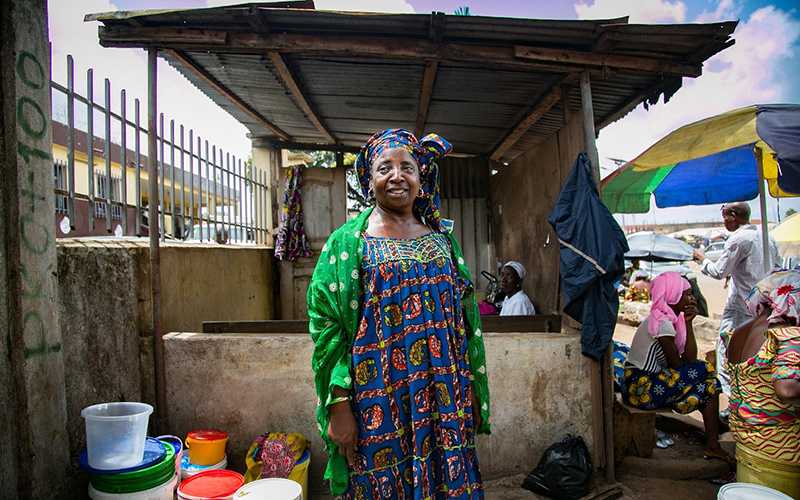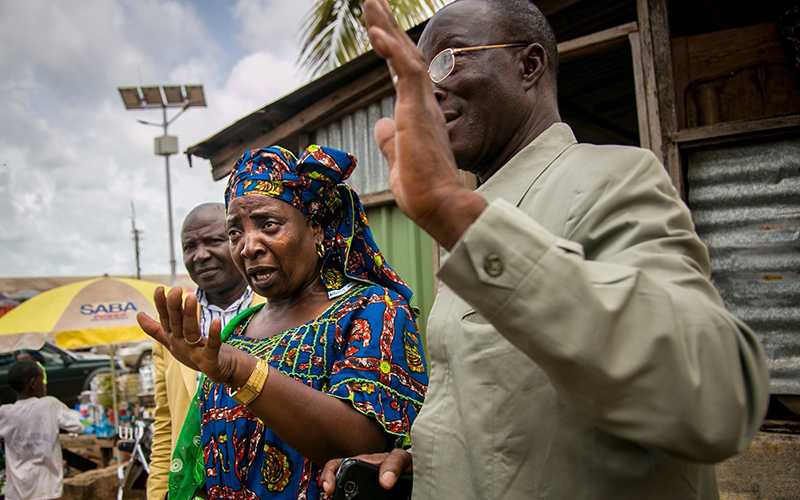Guinea Module 2: Triage Units: A First Line of Defense in Detecting Disease
Trust is key to the success of Epi-détecte, an innovative, five-year disease surveillanceproject based in Guinea.
As part of Epi-détecte, 38 new triage units have gone up across the country at targeted health facilities. The simple, prefabricated shelters allow health centers to admit suspected cases of Ebola or other infectious diseases while protecting other patients. It’s up to Epi-détecte and the Guinean boots-on-the-ground local health workers, called agents communautaire de santé, or ACS, to let communities know what’s happening and why the triage units are needed.

Dr. Camara in front of the structure that will be replaced with a triage center
“If [we] don’t help communicate the intent and purpose of the new structures, people could be fearful that their construction is a sign of Ebola’s return, rather than an attempt at protection,” explained Dr. Boubacar Ibrahima Diallo, Chief of Party for Epi-détecte. “Good and open communication is key. If you just start asking questions about people’s health out of nowhere, they start to think something bad is going to happen.”
Setting up separate triage units isn’t without its challenges, especially in densely populated urban areas like Matoto, a busy sub-district of Guinea’s capital of Conakry. But here, more than anywhere—near homes, schools, and a bustling market—triage is critical. “For people coming to Conakry for care, this is the first health facility they find,” said Dr. Conde Fanata Camara, chief of the health center since 2000. “Without triage, there’s a big risk to health workers and patients, because anyone with any condition can walk right in.”

Dr. Camara discussing the placement of the triage structure with community leaders
After a long discussion, community leaders in Matoto decided that space belonging to the market would be given up for triage activities. “The community is involved in the entire process,” said Camara.
That sense of ownership is as important as the structure itself. Without buy-in from the community to detect and report illness and encourage people to seek care, triage centers won’t work, and infectious diseases will be able to spread unchecked, threatening Guinea and the world.
- Page last reviewed: August 6, 2017
- Page last updated: August 6, 2017
- Content source:
Global Health
Notice: Linking to a non-federal site does not constitute an endorsement by HHS, CDC or any of its employees of the sponsors or the information and products presented on the site.


 ShareCompartir
ShareCompartir